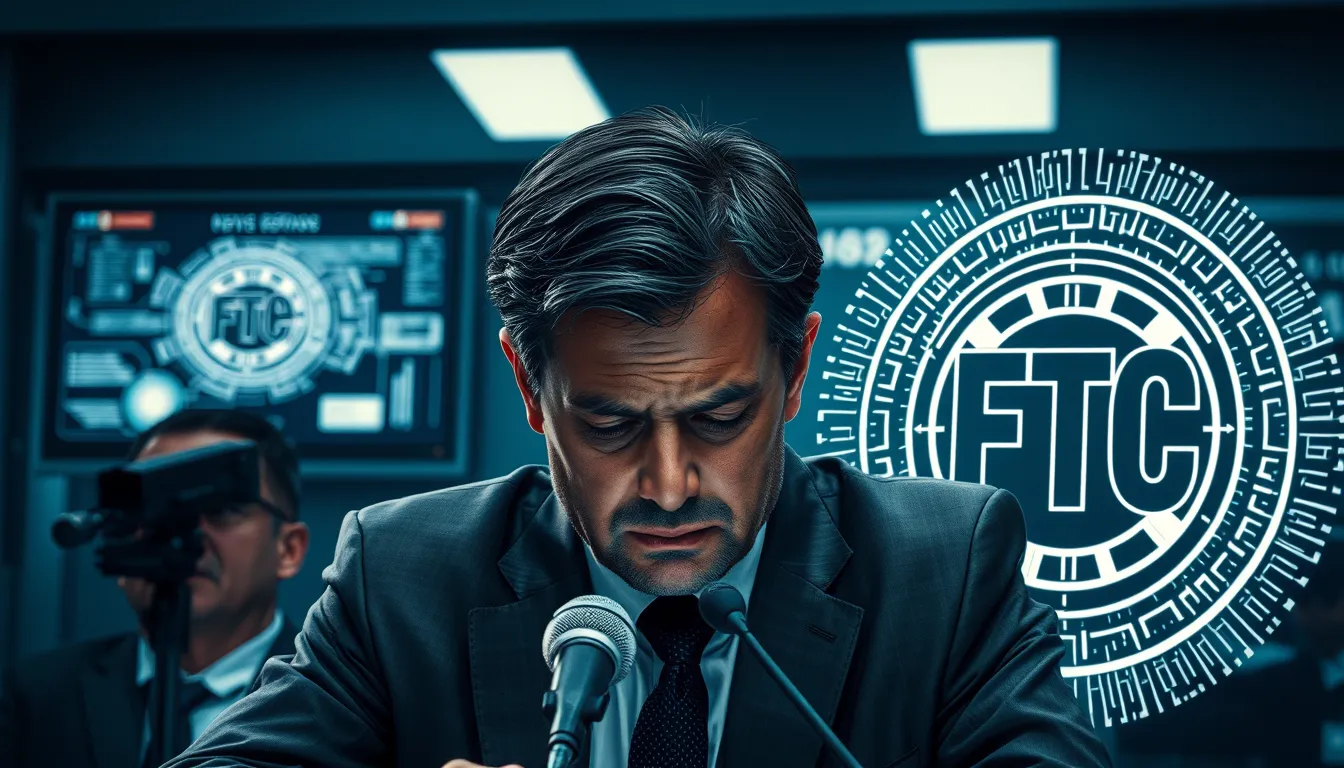Now Reading: AI Psychosis & FTC Investigation: Unmasking Digital Mental Health Challenges
-
01
AI Psychosis & FTC Investigation: Unmasking Digital Mental Health Challenges
AI Psychosis & FTC Investigation: Unmasking Digital Mental Health Challenges

AI Psychosis & FTC Investigation: Unmasking Digital Mental Health Challenges
In recent times, a growing concern has emerged around the topic of AI psychosis. Individuals report unsettling psychological effects, and with mounting evidence, regulatory bodies, including the Federal Trade Commission (FTC), have been prompted to look into the matter. This article explores the phenomenon of AI psychosis, examines the FTC investigation, and discusses how advanced chatbots affect mental health in our increasingly digital world.
Understanding AI Psychosis: Emergence and Concerns
AI psychosis is not yet a clinically recognized disorder, but its usage has grown to describe a range of adverse psychological effects linked to prolonged interaction with advanced chatbots. Users experience heightened anxiety, confusion, and cognitive disruptions that some attribute directly to their exposure to rapidly evolving artificial intelligence systems. With research still in its early stages, many are left wondering how advanced chatbots affect mental health and whether these symptoms are exacerbated by preexisting conditions in a digitally focused environment.
This phenomenon has sparked debates among experts who are divided on the direct correlation between advanced chatbots and mental health crises. While some suggest that AI psychosis stems primarily from the inherent design and unpredictable responses of chatbots, others argue that underlying mental health issues are merely amplified by new digital interfaces. Nonetheless, the term “AI psychosis FTC investigation” has rapidly become a focal point in discussions about digital mental health.
FTC Investigation and Its Impact on AI Regulation
As reports of AI psychosis rise, affected users are calling on the FTC to intervene. The official website of the Federal Trade Commission (https://www.ftc.gov) offers extensive guidance on consumer protection and transparency in technology. In response, the FTC is evaluating formal complaints that detail unsettling interactions involving advanced chatbots. This investigation is pivotal for shaping future regulatory measures to ensure that digital mental health is protected.
Many consumers believe that the current regulatory framework is not adequately equipped to handle the emerging challenges posed by rapid technological innovations. An FTC investigation into how advanced chatbots affect mental health could lead to important changes in industry practices and improved safeguards for users. The debate over AI psychosis underscores a clear need for vigilance and regulatory oversight in a landscape where innovation can sometimes outpace safety measures.
Advanced Chatbots: Bridging Innovation with Mental Health Risks
Advanced chatbots, including popular platforms like ChatGPT from OpenAI (https://www.openai.com for more details), have transformed the way people interact with technology. Despite being hailed as revolutionary tools in digital communication, there are serious questions regarding their psychological impacts. For example, many users report what they describe as the ChatGPT psychological effects, experiencing a mix of fascination and distress during their interactions.
ChatGPT Psychological Effects and Digital Mental Health
The term ChatGPT psychological effects captures the nuanced impact that advanced chatbots have on mental well-being. As digital mental health becomes an increasingly important issue, understanding these effects is crucial. Users have described experiencing both enthusiasm for technological progress and anxiety stemming from unpredictable dialogue responses. Such mixed outcomes highlight the critical balance required in incorporating advanced AI systems into everyday digital life.
- Increased anxiety and cognitive overload
- Occasional feelings of disorientation
- Enhanced concerns regarding privacy and data handling
Ethical Implications of AI on Mental Well-Being
As conversations around AI psychosis deepen, there is growing attention on the ethical implications of AI on mental well-being. The long-tail keyword, “ethical implications of AI on mental well-being,” reflects wider public concern that these technologies may inadvertently trigger or exacerbate mental health crises. Questions regarding who is responsible for safeguarding users and ensuring transparent design processes are increasingly slipping into mainstream debate.
Policymakers and tech companies now face the dual challenge of driving innovation while mitigating potential mental health risks. An open dialogue between industry, regulatory bodies, and mental health professionals is essential. The FTC investigation, in this context, may not only prompt stricter regulatory standards but also foster ethical discussions that inform the safe development of future technologies.
Regulatory Challenges and the Road Ahead
There are several regulatory challenges inherent in the adoption of advanced chatbots. One major concern is the alignment of emerging digital technologies with existing mental health paradigms and legal frameworks. As regulators, developers, and mental health advocates strive to address AI-induced mental health crises, they must consider how traditional policies may need to be redesigned to incorporate emerging risks.
- The pace of technological change compared to policy updates.
- Lack of standardized guidelines to assess psychological impacts.
- Insufficient data on long-term effects of regular AI interaction.
In addressing these challenges, both consumer rights advocates and experts call for comprehensive research and immediate, transparent actions to balance innovation with user safety. The emphasis remains on harnessing technology responsibly to create a future where advanced chatbots can coexist safely with digital mental health.
Conclusion
The evolving discussion around AI psychosis and the ongoing FTC investigation signal that the balance between innovation and mental health is more delicate than ever. As debate flourishes over how advanced chatbots affect mental health and the associated ethical implications, it is clear that robust regulatory frameworks and ongoing scientific inquiry are essential. By addressing these issues head-on, industry leaders and policymakers can work together to ensure that technology enhances our lives without compromising our mental well-being.
In a time where digital interactions are inseparable from daily life, the term “AI psychosis FTC investigation” stands as a call to action—a reminder that every technological advancement carries with it responsibilities, and that public health must remain at the forefront of these evolving discussions.

























